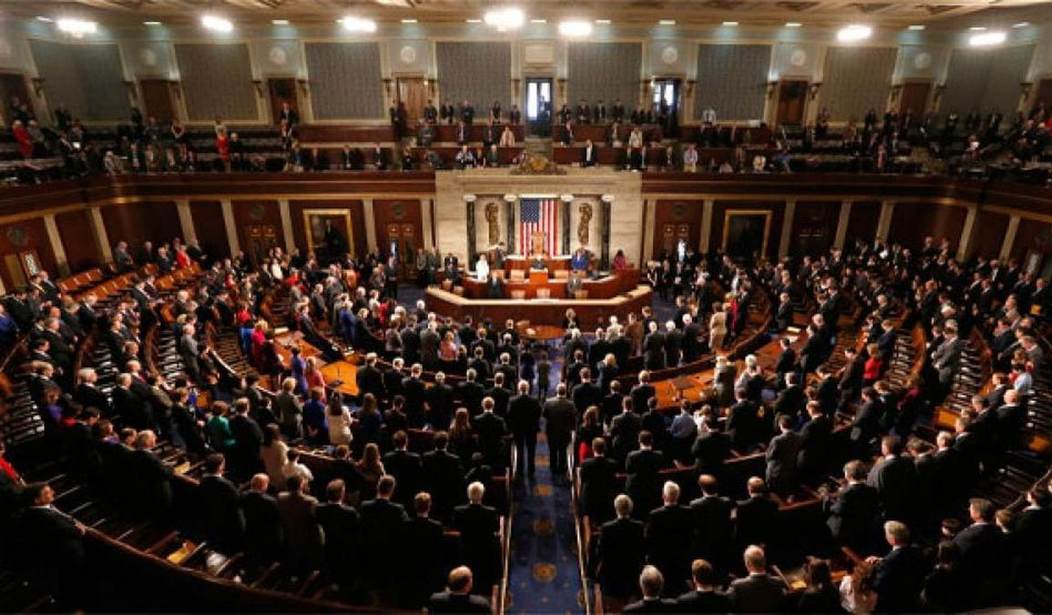The Republican-led House passed a bill yesterday that would allow Congress to consider the repeal of all regulations written by the Obama administration during the last 60 days of the president’s term.
The Midnight Rule Relief Act amends the Congressional Review Act by allowing lawmakers to pull together several rules and overturn them all at once by passing a joint resolution of disapproval.
Rep. John Conyers Jr. (D-Mich.) criticized Republicans for bringing the bill to the floor so soon.
“I’m surprised that without hearings, without opportunity for amendment, we are now considering a measure that has this much opposition,” he said.
The American Sustainable Business Council (ASBC), which claims to represent a network of more than 250,000 businesses, sent a letter to members of the House on Wednesday urging them to oppose this “anti-regulatory” measure.
“This would be like taking a chainsaw into surgery,” David Levine, ASBC’s CEO and co-founder, said in a statement.
“Businesses depend on good regulations to set clear boundaries and rules for fair competition on a level playing field.”
Instead, Levine claims that the Midnight Rules Relief Act would enable Congress to undo batches of rules without any consideration of their individual merits.
While debating the bill on the floor Wednesday afternoon, Rep. Darrell Issa (R-Calif.) appealed to the freshman class of the new Congress.
Issa informed new lawmakers that Congress has only once, in 2001, successfully repealed a rule by way of a resolution under the Congressional Review Act.
“All this legislation does is allow for us to dispose of one or more regulations in an expedited fashion in this body and have it seen in the same form in the Senate,” he said. “It doesn’t change the underlying law.”
He explained that the House, the Senate and the president all have to agree on the resolution to repeal a rule.
“Only one regulation has ever been repealed,” he said. “It’s been 16 years and the few that will likely be considered under this act and underlying law will be just that, a relatively few regulations that are believed to be unnecessary on which the House, Senate and president concur.”
“The Obama regulatory agenda is like economic quicksand for American businesses and workers; the more they try to get ahead, the harder this administration works to pull them back down. Freedom Partners strongly supports these positive first steps to put important checks on government overreach and give appropriate scrutiny to regulations that threaten further damage to our economy. Americans called for an end to business as usual last November — Congress shouldn’t waste any time delivering on that promise.”
The Midnight Rule Relief Act would allow Congress to disapprove of multiple so-called “midnight rules”— regulations finalized in the waning days of the administration—using a single Congressional Review Act (CRA) resolution, as opposed to disapproving of these rules individually.
The bill would target both proposed rules and those regulations that have been finalized.
Some of the rules on the chopping block are significant.
Republicans could use the act to reopen Arctic waters for drilling, restart the Dakota Access Pipeline and reverse the federal government’s Western land grab. There’s something for everyone on the right to like.
As a matter of principle, it allows Congress to claw back authority from runaway administrative agencies. The immediate political ramifications are obvious. The act gives Trump some breathing room. He can sweep aside much of his predecessor’s work and begin quickly focusing on his own agenda.
If Majority Leader McConnell and Senate Republicans follow the example of their house colleagues, there will be fireworks during Trump’s first 100 days.
Another piece of legislation almost certain to pass the House is the Regulations from the Executive in Need of Scrutiny (REINS) Act, which would require agencies to submit “major” rules — those with an annual economic impact of $100 million or more — to Congress for review and a clear up-or-down vote before the rules take effect.
It appears that Congress is finally going to exercise its constitutional role of oversight on the executive branch and curb their constant grasping for power.










Join the conversation as a VIP Member